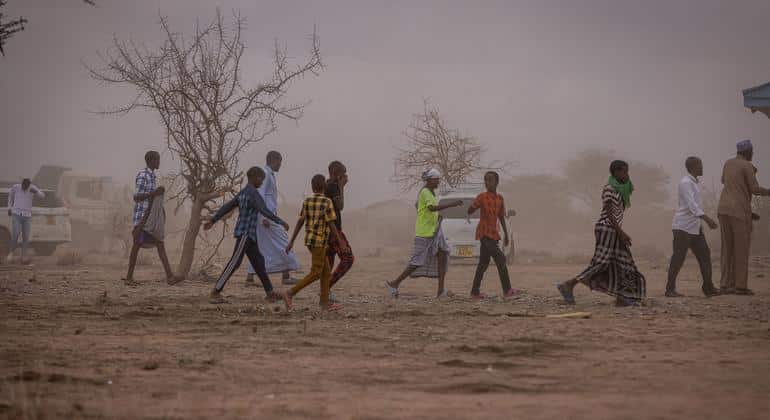Here’s the American English translation:
—
The United Nations Environment Programme (UNEP) has released an alarming report revealing a significant financial shortfall for climate change adaptation in developing countries. According to the study, an annual funding of at least $310 billion will be needed starting in 2035, a figure that surpasses current international funding flows by twelve times.
The urgency of the situation intensifies as, without an immediate increase in investment, global adaptation could fall far behind what is truly needed. This report is published at a crucial moment, just before the COP30 negotiations set to take place in Belém, Brazil, starting on November 10. Despite efforts in planning and policy, funding has failed to meet the stipulated needs.
With current trends, meeting the Glasgow Climate Pact goal, which aims to double international funding for adaptation to $40 billion by 2025, appears to be a challenging task. UN Secretary-General António Guterres has emphasized that the effects of climate change are accelerating, leaving the most vulnerable communities exposed to serious risks such as rising sea levels and extreme weather events. “Adaptation is not an expense; it is a lifeline,” he stressed.
Developing countries will need between $310 billion and $365 billion annually by 2035, compared to the mere $26 billion raised in 2023, reflecting a decline from the previous year. The consequences of climate change, such as wildfires and droughts, are already evident, making the need for increased funding even more urgent without exacerbating the debt of the most affected nations.
Although 172 countries have at least one adaptation policy, many have not reviewed their strategies in over a decade, which could compromise their effectiveness. While more than 1,600 adaptation measures have been implemented, the lack of reporting on the results and impacts of these initiatives makes it difficult to assess their effectiveness.
The New Quantified Collective Goal, agreed upon at COP29, states that developed countries must contribute at least $300 billion annually to climate finance by 2035, although UNEP considers this figure to still be insufficient. The crucial role of the private sector is also highlighted, with its potential investment in adaptation priorities estimated at $50 billion annually, well above the current $5 billion. Achieving this will require specific policies and blended financing schemes that reduce risks and encourage business participation.
—
If you need any more help or adjustments, feel free to ask!
via: MiMub in Spanish










